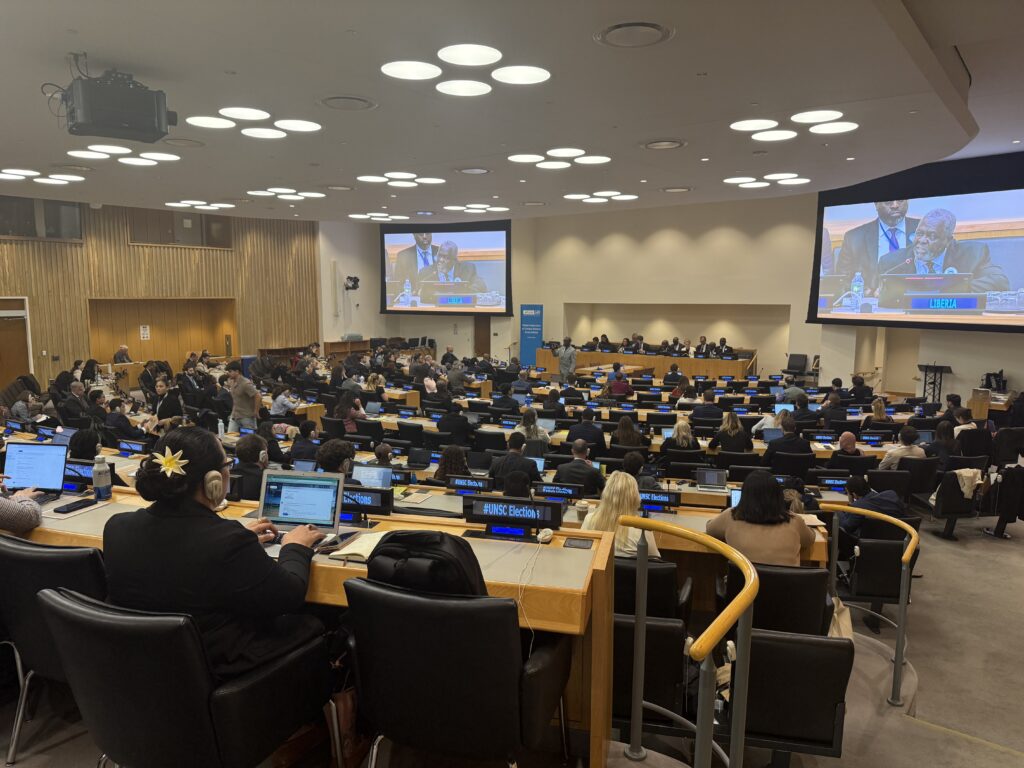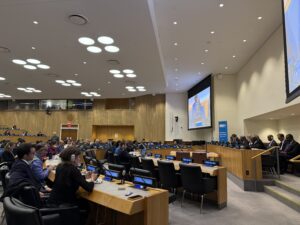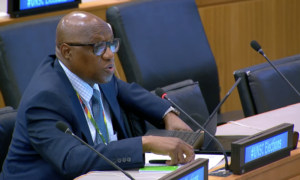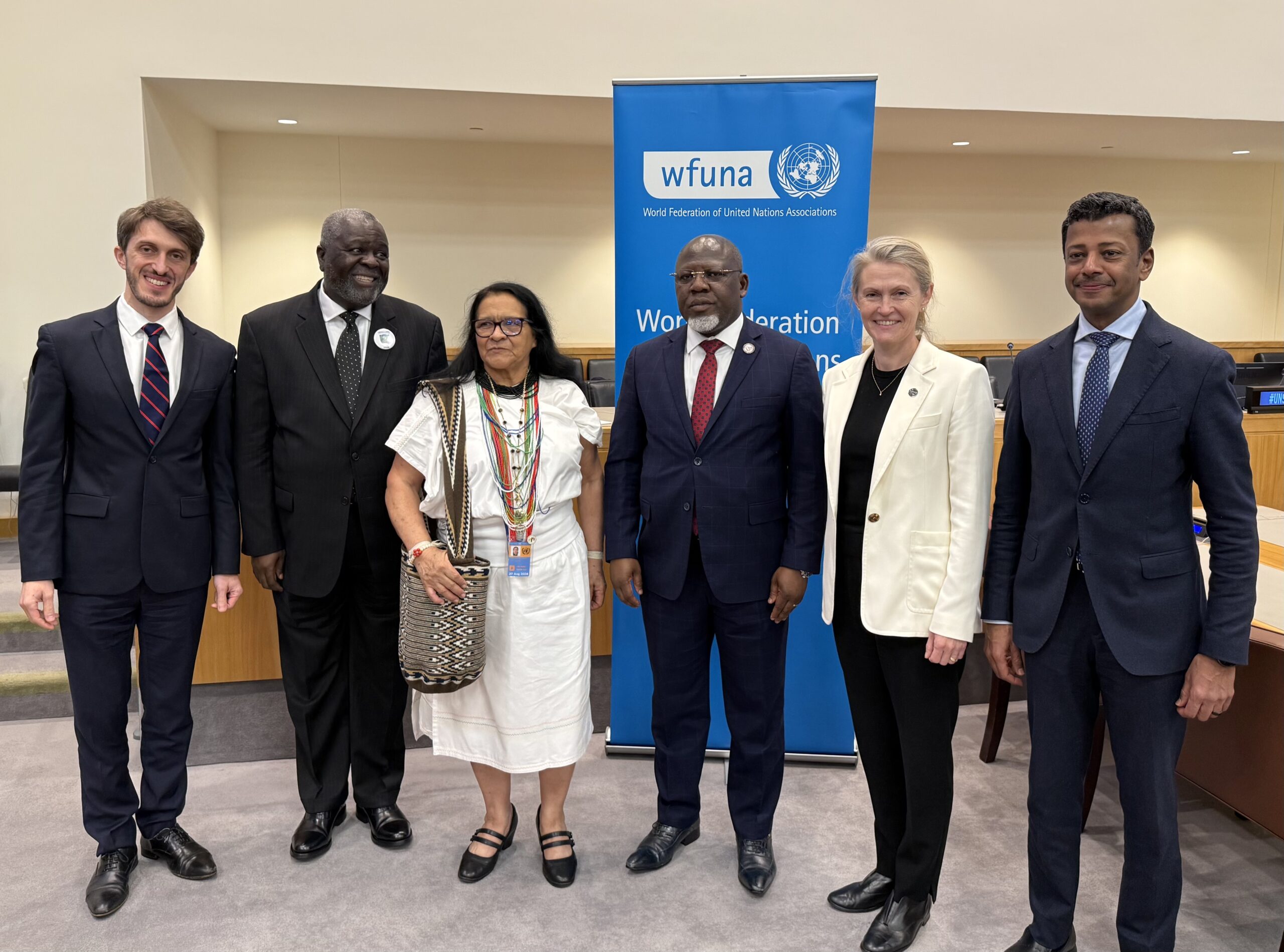UN Security Council 2025 Election Briefing
UNSC Election Briefing featuring all UN Security Council candidates seeking election for a non-permanent seat on the Council for the 2026-2027 term.

UNSC Election Briefing featuring all UN Security Council candidates seeking election for a non-permanent seat on the Council for the 2026-2027 term.
On Wednesday May 21, 2025, WFUNA held a UNSC Election Briefing featuring all UN Security Council candidates seeking election for a non-permanent seat on the Council for the 2026-2027 term. This event featured the uncontested candidates currently running unopposed, included Bahrain, Colombia, Democratic Republic of Congo, Latvia, and Liberia. The candidate countries were represented by Ambassadors of all five Missions to the UN, being H.E. Jamal Fares Alrowaiei, Permanent Representative of the Kingdom of Bahrain to the United Nations, H.E. Leonor Zalabata Torres, Permanent Representative of Colombia to the United Nations, H.E. Zenon Mukongo Ngay, Permanent Representative of the Democratic Republic of the Congo to the United Nations, H.E. Sanita Pavļuta-Deslandes, Permanent Representative of the Republic of Latvia to the United Nations, and H.E. Lewis Garseedah Brown II, Permanent Representative of the Republic of Liberia to the United Nations.
 WFUNA’s Secretary-General, Mr. Aziel-Philippos Goulandris moderated the Briefing, facilitating interventions and questions from representatives of both Member States and Civil Society Organizations. The discussion centered on the candidates’ intentions and priorities if elected to the Council, as well as addressing relevant thematic issues and global concerns.
WFUNA’s Secretary-General, Mr. Aziel-Philippos Goulandris moderated the Briefing, facilitating interventions and questions from representatives of both Member States and Civil Society Organizations. The discussion centered on the candidates’ intentions and priorities if elected to the Council, as well as addressing relevant thematic issues and global concerns.
During the briefing, the participating missions addressed their priorities and objectives for the upcoming UNSC term.
Ambassador Alrowaiei of Bahrain spoke about Bahrain’s perspective as a dynamic region and their longstanding recognition of the importance of peace, co-existence, and cooperation. The Ambassador emphasized a focus on cybersecurity, maritime security, and the fight against the financing terrorism, as well as committing to involving women and youth in the maintenance of peace and the peace-building process.
Ambassador Zalabata Torres of Colombia reiterated Colombia’s long tradition in multilateralism as a founding member of the UN, and a repeat member on the Security Council. The Ambassador outlined Colombia’s vision for facing the complex global challenges along three axes: advocacy for peace and respect for diversity, experience in transitional justice so that reconciliation can overcome conflict, inclusiveness through defending voices that have been diminished in recent years.
Ambassador Mukongo Ngay of DRC highlighted the DRC’s previous experience on the Security Council promoting peace and stability in Africa and the world. The Ambassador spoke about the country’s size and resources as motivators for the DRC’s commitment to multilateralism, international peace, and global justice. He also mentioned an action plan for DRC’s candidacy, including a focus on climate action and responsible growth, a holistic and reflective approach to the actions of the Council, and the prevention of conflict.
Ambassador Pavļuta-Deslandes of Latvia spoke about the history of Latvia’s independence through peaceful means and how it has informed their belief in the power of multilateralism. The Ambassador spoke about Latvia’s candidacy along three main directions: upholding international law to achieve global just and lasting peace, championing today’s most pressing and evolving threats including cybersecurity and climate change, and promoting transparency and inclusivity in the Council’s work.
Ambassador Brown of Liberia emphasized Liberia’s position as a post-conflict African nation in informing their approach to their candidacy on the Council, including building partnerships, strengthening regional security, and promoting openness and transparency. The Ambassador highlighted the benefits of bringing Liberia’s unique perspective in its lived experience of transitioning from war to peace to the Council and stressed the importance of the implementation of resolutions.
These diverse perspectives among the candidate countries underscore a shared commitment to maintaining multilateralism and addressing global challenges through collaborative efforts on the Security Council, which was observed in their closing statements as well.
 Questions from attendees focused on the balancing of priorities among council members and Security Council reform, among other thematic and situation specific topics. The Election Briefing was held in-person at UNHQ in New York, and was attended by approximately 155 Member and Observer States and CSO representatives. The event was also broadcast on UN Web TV for wider viewing, and you may find a recording of the events here. Further, the event was promoted on social media using the hashtag #UNSCElections. With the active engagement of Member States, UN Associations and Civil Society Organizations, the event enabled the participation of a more global audience to promote transparency and accountability within the United Nations Security Council.
Questions from attendees focused on the balancing of priorities among council members and Security Council reform, among other thematic and situation specific topics. The Election Briefing was held in-person at UNHQ in New York, and was attended by approximately 155 Member and Observer States and CSO representatives. The event was also broadcast on UN Web TV for wider viewing, and you may find a recording of the events here. Further, the event was promoted on social media using the hashtag #UNSCElections. With the active engagement of Member States, UN Associations and Civil Society Organizations, the event enabled the participation of a more global audience to promote transparency and accountability within the United Nations Security Council.

For more about WFUNA’s UN Security Council transparency initiative, click here.
Do you want to learn more about the UN? Or implement an SDG project in your community? Our programs will give you the skills and connections you need!
Learn MoreAre you part of an organization, foundation or school that wants to help achieve the UN’s Sustainable Development Goals? We are always open to collaborating to help connect more people to the UN and empower global citizens.
Let’s start a conversation!